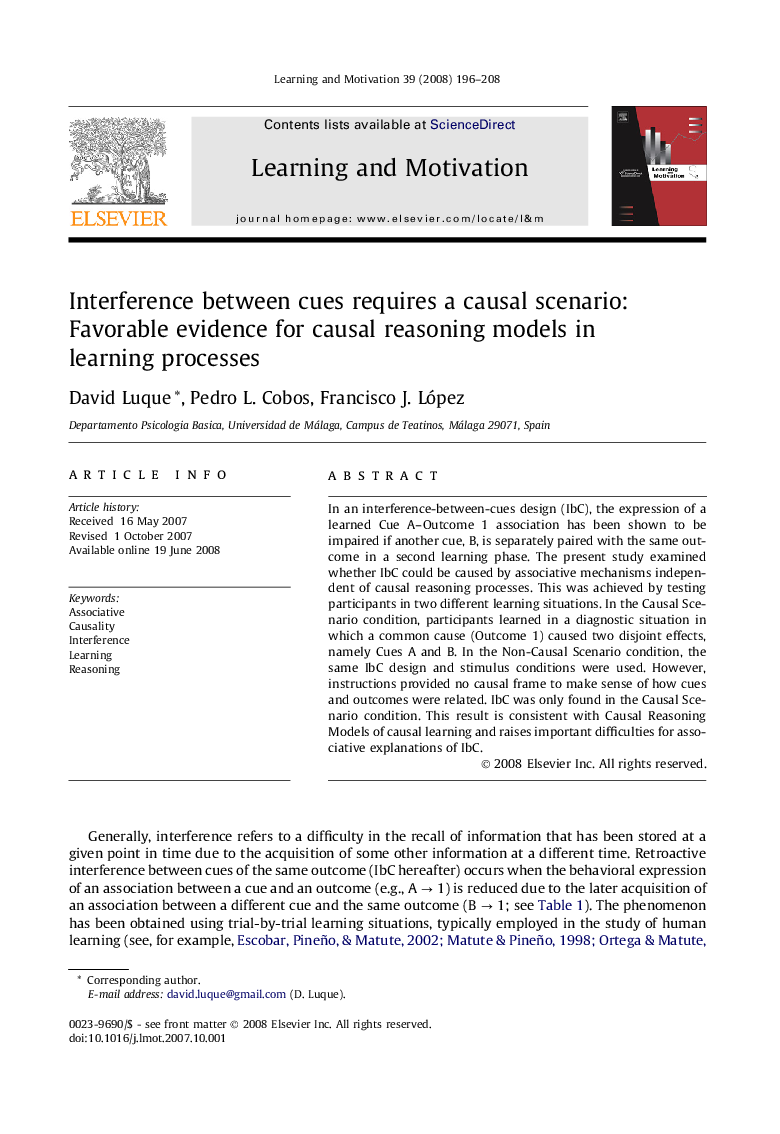| کد مقاله | کد نشریه | سال انتشار | مقاله انگلیسی | نسخه تمام متن |
|---|---|---|---|---|
| 919066 | 919879 | 2008 | 13 صفحه PDF | دانلود رایگان |

In an interference-between-cues design (IbC), the expression of a learned Cue A–Outcome 1 association has been shown to be impaired if another cue, B, is separately paired with the same outcome in a second learning phase. The present study examined whether IbC could be caused by associative mechanisms independent of causal reasoning processes. This was achieved by testing participants in two different learning situations. In the Causal Scenario condition, participants learned in a diagnostic situation in which a common cause (Outcome 1) caused two disjoint effects, namely Cues A and B. In the Non-Causal Scenario condition, the same IbC design and stimulus conditions were used. However, instructions provided no causal frame to make sense of how cues and outcomes were related. IbC was only found in the Causal Scenario condition. This result is consistent with Causal Reasoning Models of causal learning and raises important difficulties for associative explanations of IbC.
Journal: Learning and Motivation - Volume 39, Issue 3, August 2008, Pages 196–208